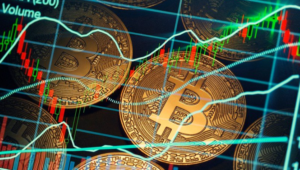$DAX $CAC40 $EURUSD
#Europe #StockMarket #Investing #Geopolitics #Economy #Bonds #Forex #EuropeanStocks #Inflation #InterestRates #MarketTrends #WarEconomy
European markets have been facing significant volatility as geopolitical tensions continue to cloud investor sentiment. Investors are grappling with the challenge of pricing in political risks, including ongoing conflicts, shifting alliances, and uncertain economic policies. Historically, such instability has led to a “war discount” in equity valuations, as market participants demand a premium for uncertainty. However, the extent of this discount in Europe today remains debatable. Many stock indices, including the DAX and CAC 40, have struggled to sustain momentum amid concerns over rising defense spending, fluctuating energy costs, and potential disruptions to trade. Currency markets have also felt the impact, with the euro experiencing bouts of weakness due to concerns over policy responses from the European Central Bank (ECB). Investors are now watching closely for signs of a clearer direction, but volatility persists as the global macroeconomic environment remains fluid.
The bond market reflects this uncertainty, with European sovereign yields remaining elevated as investors weigh the risks of higher fiscal deficits due to increased military expenditures. Despite the ECB’s attempts to maintain stability through interest rate adjustments, borrowing costs for governments are creeping higher, potentially squeezing growth prospects. Additionally, inflation remains an ongoing challenge, as a combination of supply chain disruptions, persistent core inflation, and energy market fluctuations keep central bankers on high alert. Equity markets, while not outright collapsing, have shown a preference for defensive sectors such as utilities and consumer staples, as investors shy away from cyclical and growth-dependent industries. The financial sector, particularly European banks, also remains under pressure due to potential spillover risks from geopolitical events and concerns over economic resilience.
For currency traders, the euro’s trajectory remains uncertain as investors parse through economic data and geopolitical risks. The EUR/USD pair has exhibited volatility, particularly in response to statements from policymakers hinting at future interest rate moves. A hawkish ECB attempting to battle inflation could provide short-term support for the euro, but prolonged geopolitical instability could overshadow rate hikes, leading to capital flight to safer assets. At the same time, foreign direct investment (FDI) into Europe has slowed as businesses reassess the risks of expanding in a region where political tensions could disrupt supply chains and trade agreements. This hesitation is further reflected in European equity markets, where large multinational firms with exposure to global markets are frequently revising earnings outlooks due to heightened external risks.
Ultimately, investors are navigating a complex environment where geopolitical developments, inflationary pressures, and central bank policies all intersect. While European markets have not seen an extreme “war discount,” the persistent uncertainty has resulted in lower risk appetite and selective positioning by institutional investors. The relative underperformance of European stocks compared to U.S. markets suggests that geopolitical factors are contributing to sustained caution. Looking ahead, market participants will need to weigh the broader economic impact of ongoing conflicts and fiscal policies, while staying attuned to shifts in central bank rhetoric. Until clarity emerges on these fronts, volatility is likely to remain a defining characteristic of European financial markets.










Comments are closed.